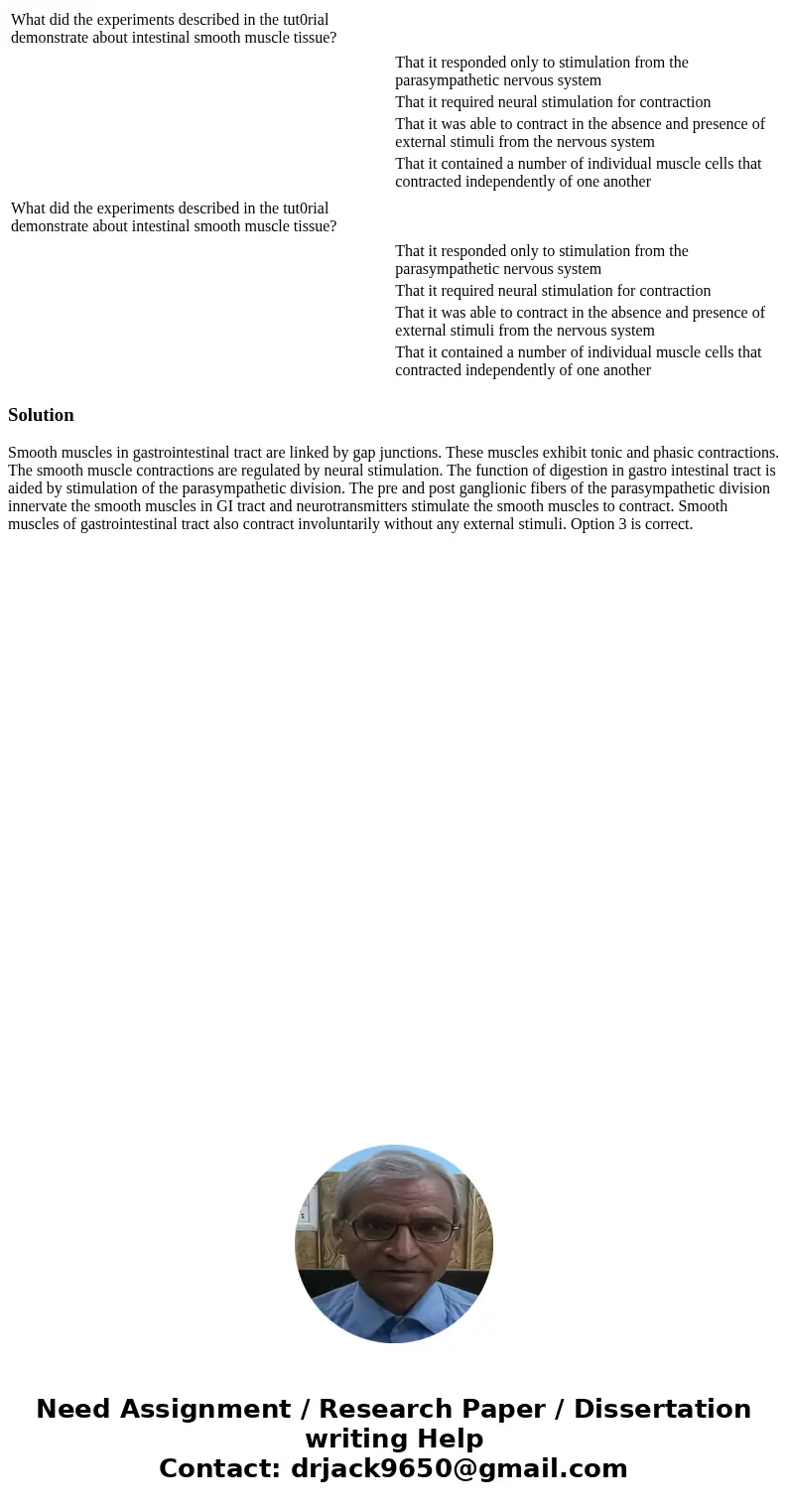| What did the experiments described in the tut0rial demonstrate about intestinal smooth muscle tissue? |
| | That it responded only to stimulation from the parasympathetic nervous system | | That it required neural stimulation for contraction | | That it was able to contract in the absence and presence of external stimuli from the nervous system | | That it contained a number of individual muscle cells that contracted independently of one another | |
| What did the experiments described in the tut0rial demonstrate about intestinal smooth muscle tissue? |
| | That it responded only to stimulation from the parasympathetic nervous system | | That it required neural stimulation for contraction | | That it was able to contract in the absence and presence of external stimuli from the nervous system | | That it contained a number of individual muscle cells that contracted independently of one another | |
Smooth muscles in gastrointestinal tract are linked by gap junctions. These muscles exhibit tonic and phasic contractions. The smooth muscle contractions are regulated by neural stimulation. The function of digestion in gastro intestinal tract is aided by stimulation of the parasympathetic division. The pre and post ganglionic fibers of the parasympathetic division innervate the smooth muscles in GI tract and neurotransmitters stimulate the smooth muscles to contract. Smooth muscles of gastrointestinal tract also contract involuntarily without any external stimuli. Option 3 is correct.

 Homework Sourse
Homework Sourse